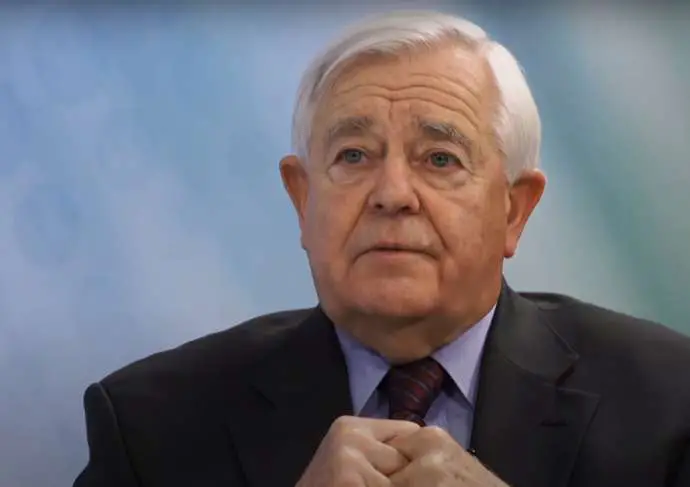STA, 6 December 2020 - Three decades after Slovenia's parties reached a joint agreement on an independence referendum in which an overwhelming majority opted for independence, the country's first president Milan Kučan says unity cannot be taken be taken for granted, explaining why it is elusive now.
"Independence was a clear, understandable project. If there's no such project, appeals for unity are but a political cliche and an excuse for political impotence," Kučan told the STA in an interview.
What made unity over independence and its success possible were in his view four elements, which he believes could also be useful to politicians today.
"The most important one is that it could have never been a project of one part the citizenry against the other. If it were, the project, the plebiscite including, would never have succeed," he says.
"Nor was independence a romantic realisation of the nation's millennium dream, but the result of a series of thorough rethinks and decisions in the given historical circumstances, culminating in the political and economic crisis in Yugoslavia and the spread of nationalism."
Another key aspect was the legitimacy and lawfulness of independence through the passage of constitutional laws and the plebiscite law, and the "painful" debate on what quorum should be sought in the plebiscite helped overcome distrust.
At the time, the opposition parties, largely represented by groups that evolved from the former Communist party and other associations that existed under the former regime, believed a majority of all eligible voters should vote in favour in order for the referendum to succeed. This solution was adopted.
The fourth major aspect, according to Kučan, is that independence was a project of a country rather than a party.
"This is not to say that I underestimate the fact that the project matured within the DEMOS coalition, based on the concept of the Slovenian national programme that was more or less set down in volume 57 of Nova Revija," he said in a reference to the January 1987 issue of the literary journal.
Kučan never doubted the referendum on 23 December 1990 would succeed (on a turnout of 93%, 95% voted in favour of independence). "People were willing to accept the independence concept as long as politicians told them plain truth."
However, unity began to unravel soon after the country declared independence on 25 June 1991, which Kučan believes is because the awareness of the need for shared responsibility for the country was lost and the interests of a party, group and bloc have prevailed.
"The moment citizens realise we are being treated like fools, when the epidemic is being used as a cover for the pursuit of ideological and political interests and resorting to repressive apparatuses, trust in politics is gone. (...)"
"What has the government's dealing with the statistics office, media, museums and police got to do with the epidemic," he wondered.
Considering the suspension of financing of the STA "it may appear as if the government was running out of time and was in a hurry to subjugate all subsystems and institutions, while in fact it is how the largest ruling party has always operated and how it has understood democracy".
He finds it less understanding that the Democratic Party (SDS) is being uncritically supported by other coalition parties in "its ambitions and its dismantling of the principles of democracy and its institutions".
Apart from the coronavirus epidemic, other projects too call for unity, including electoral reform, the course of Slovenia's foreign policy, and the need to form a comprehensive concept of a green country.
Despite much effort that has been invested in the electoral reform, decreed by the Constitutional Court, including by President Borut Pahor, Kučan believes parties have embarked on the project in ill faith.
"Each party has calculated what would suit it best, even though the most suitable solution would be to abolish electoral districts and adopt a system that we have for elections to the European Parliament," involving a preferential vote.
Kučan is of the opinion that Slovenia's foreign policy is moving away from the guidelines passed by parliament with writings by Prime Minister Janez Janša and Foreign Minister Anže Logar, which were not the positions of the government.
He believes it will take quite a while for Slovenia to restore the "trust of the external world". "The uncertainty about Slovenia's international position and interests and its tarnished reputation in the world will also tarnish the authority of the Slovenian presidency of the Council of the EU."
"We're aspiring for friendship with those we shouldn't be friends with and have nothing in common with. Hearing arguments that us who used to live in the East have a different understanding of democracy and the rule of law than long-established democracies, it feels as if we are making fools out of ourselves," he said.
He believes Slovenia should have a balanced relationship with the superpowers - the US, Russia and China, and in the future he would like to see the country at the core of a successful EU as a major world player.






